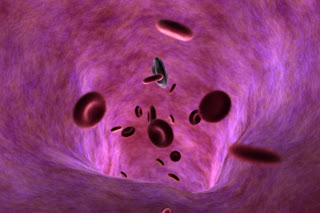Avoiding apoptosis
(programmed cell death) is one sure way that cancer develops and
progresses. This naturally-occurring event rids the body of damaged
cells and serves to maintain healthy tissue function. Apoptosis is
usually triggered when cell stress, DNA damage, and other signals
come about.
Cancer cells, on the
other hand, are able to skirt the process and continue to endure.
See, the body already has the functionality to protect us from cancer
and actually may do so up to 10,000 times per day.
What we have to determine
is why Stage 4 Cancer patients divert
apoptosis.
Mutations
Bring About Stubborn and Resistant Stage 4 Cancers
Apoptosis may be
triggered internally (from within a cell) or externally (from
without.) When it occurs from within the cell, the process relies on
the functionality of a protein called p53. Certain mutations can
cause this protein’s gene can cause inactivity, thereby preventing
apoptosis. This type of mutation is seen in about half of human
cancers. A treatment that targets such mutations will significantly
increase effectiveness.
Silver
Bullet known as Chemo, Can be Dodged by Stage 4 Cancers
While it is true that
radiation and chemotherapy indirectly promote apoptosis by damaging
cell DNA, cancer found a tricky loophole to side-step this matter.
DNA damage is triggered from within the cell via protein p53. But,
because mutations to p53 can shut down apoptosis, cancer is often
adept at avoiding chemotherapy’s chief mechanism.
For patients undergoing
such standard protocols, it is not uncommon to see cancer progress
and recur, regularly. Envita works to overcome p53 oncogene mutations
through nutritional cancer treatments. The goal is to allow the body
to begin and maintain healthy apoptosis.
After all, it does stand
to reason that nutritional, immunological, or impairments in toxin
elimination deficiencies could all trigger environments leading to
cancer development. Why not take the measures necessary to bolster
these functions as an added defense.
Launching
an Offensive on Cancer
By promoting apoptosis
from outside the cell, as well as other methods from within, we may
illicit programmed death in cancer cells that were previously
resistant to conventional treatments. And, depending upon the type
and stage of cancer, there are numerous approaches Envita employs.
Mitochondria dysfunction
support coupled with recommended nutrients aim to restore healthy
mitochondria functionality and thereby normal apoptosis. It is unique
treatments such as this one, that help the body to attack and
eliminate cancer cells. Our track record over the last decade is
impressive, having fought against the most challenging Stage 4 Cancer.
Treatment
Improved – Results Achieved
Envita’s
Comprehensive Smart Oncology® program (link to Envita cancer page)
integrates successful oncology combinations with our aggressive
natural therapies that affect apoptosis in cancer cells by using
tumor destruction methods that actually rely solely on p53. Visit our
PPMR process (link to Envita PPMR page) or contact us speak to
one of our patient-care educators so that we can put an immediate
plan in place for you.

